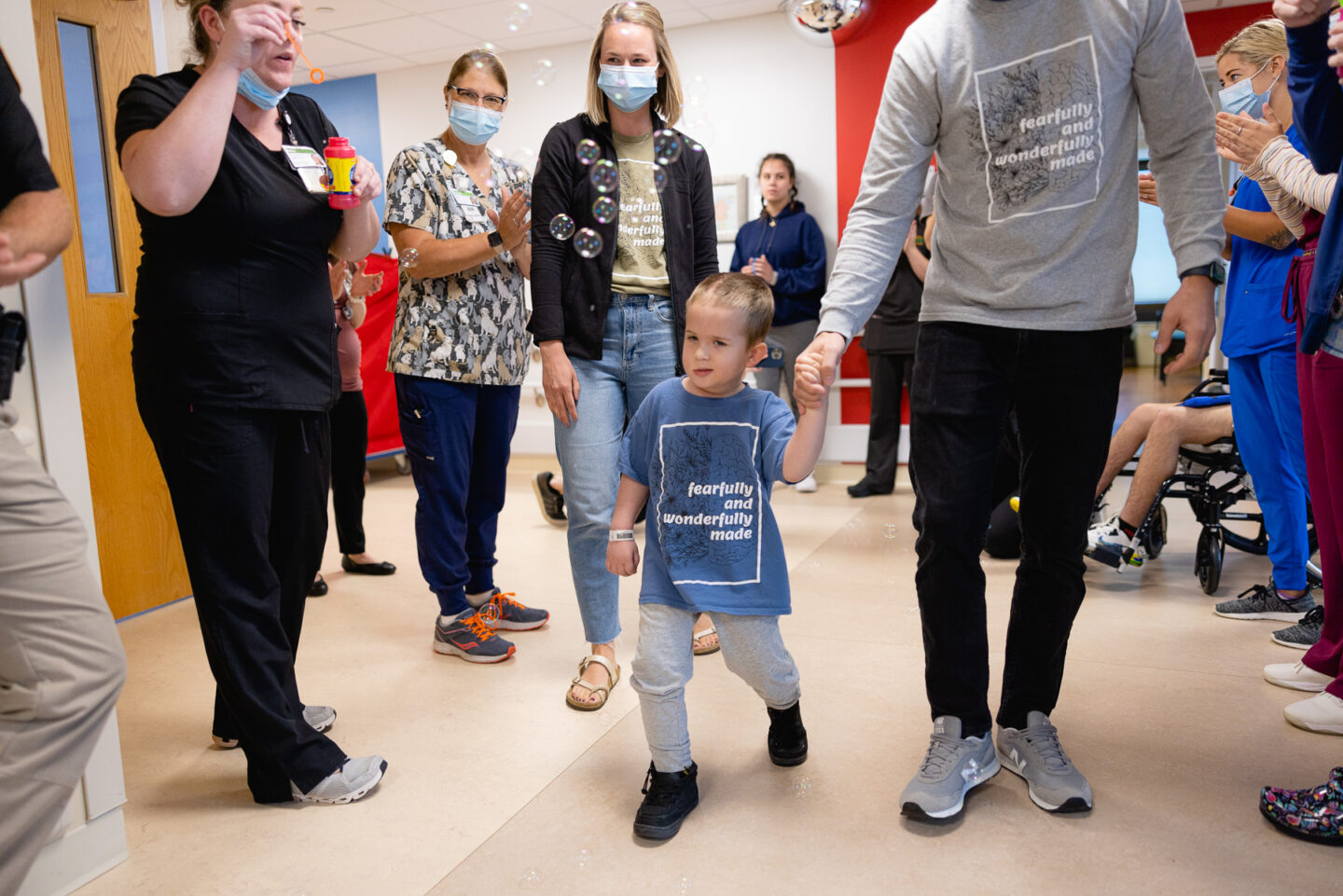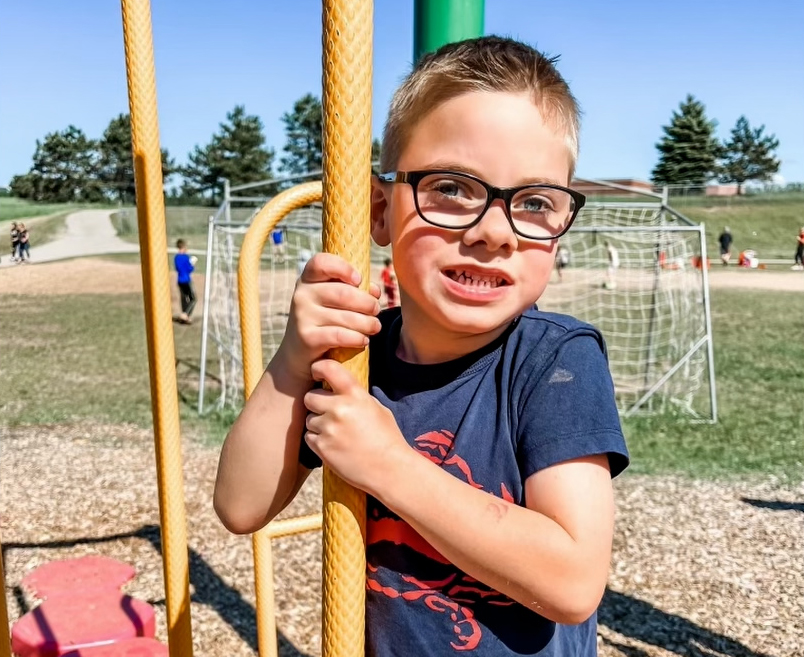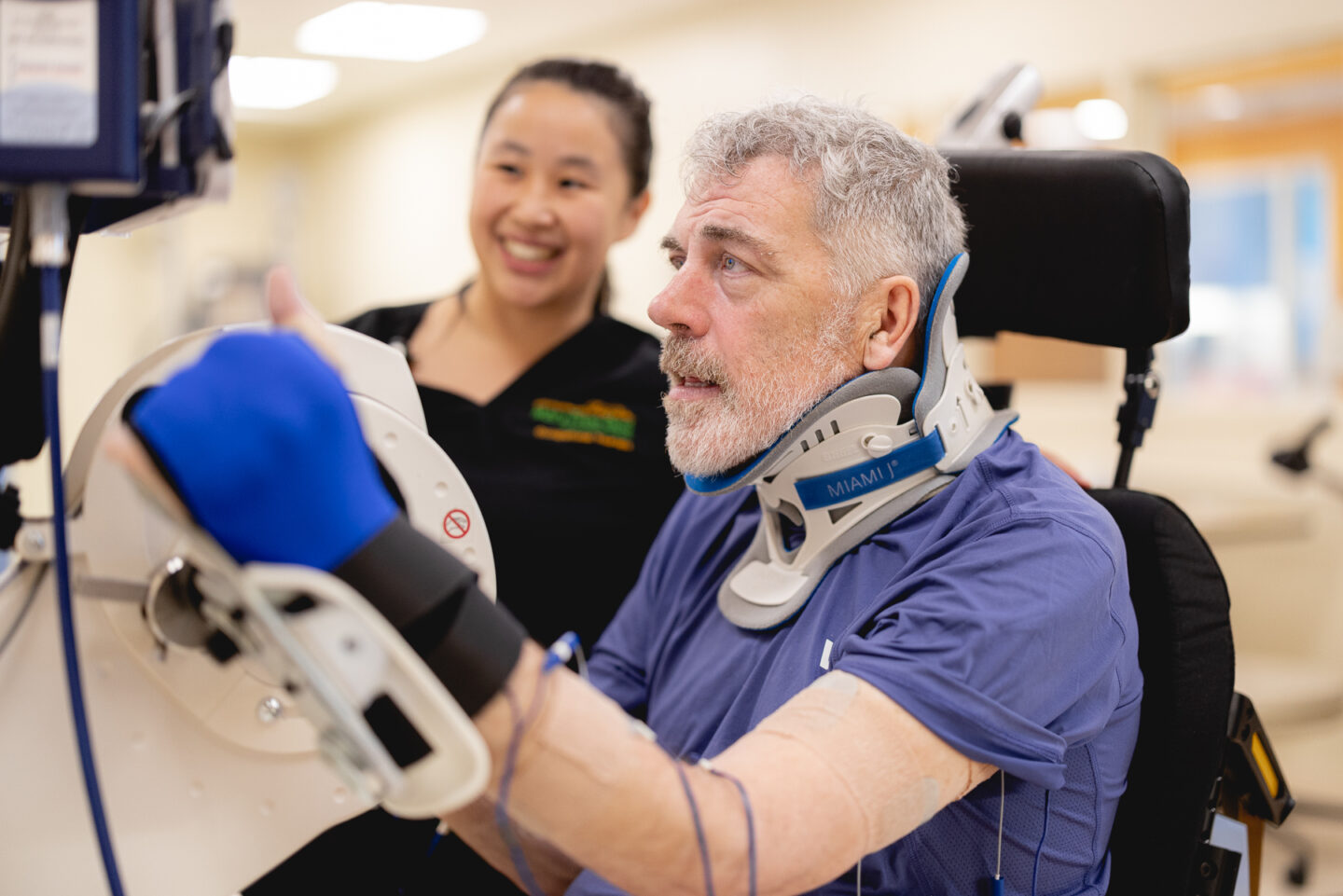Posted on September 1, 2011
‘Good enough’ isn’t good enough for master pistol shooter
By Molly Cartwright
After Larry Mennetti survived a hemorrhagic stroke, he was eager to get better, in spite of the hard work and determination required to get there.
When he came to Mary Free Bed Rehabilitation Hospital, the entire right side of his body was unresponsive. He couldn’t sit up, walk or speak clearly. He remembers the feeling of being unable to do basic movements that people learn to do automatically, like talking with your hands.
“It was like being born yesterday,” Larry said.
Before the stroke, Larry competed in pistol shooting. It was more than a hobby, though – Larry won the title of master shooter in the senior class in the 2006 National Conventional Pistol Postal Championship. The West Michigan pistol league – the oldest in the nation – also named its traveling trophy after Larry. After the stroke, Larry and his wife Marilyn were ready to do the work Larry needed to do to get back to shooting.
“You couldn’t focus on what you couldn’t do because you had so much to do,” Marilyn said.
Even so, Marilyn remembered feeling lost after her husband’s stroke.
“You don’t know what will recover,” Marilyn said, referring to their uncertainty about how much Larry could recover through rehabilitation.
But according to Larry, he had to find the will and determination within himself to recover. He told himself to keep going and to keep improving. The work continues even after you leave Mary Free Bed, Larry said. Since he’s graduated, he hasn’t allowed himself any slack.
“I’ve got a driven personality,” he said, remembering the times other people told him he wouldn’t recover.
After 11 days of inpatient therapy in the stroke program, which included 6 sessions of physical therapy a day, Larry left Mary Free Bed able to walk and talk again.
Then, 6 months later, Larry came to Mary Free Bed again after a hip replacement. While Larry and Marilyn hoped to work with the therapists of the stroke program, whom they had grown to trust and respect, Larry instead started therapy in the Return to Work Program. It turned out to be one of the best things that could have happened to him.
According to Larry, the therapists in the Return to Work Program didn’t just want him to get better – they wanted him to get his life back.
“What do you want out of this?” Larry’s therapists asked.
In response, Larry mentioned pistol shooting. “Someday I’m going to be able to do this again,” he said.
The Return to Work Program is a specialized therapy program designed to help people with a wide range of diagnoses handle the physical aspects of their jobs. Patients often do aerobic and strength training, as well as specialized therapies that are specific to the patient’s job. One of Larry’s therapy activities included a trigger pull exercise, which helped train his right trigger finger.
Larry hopes to be shooting a hand gun next year, although he still has a lot of work to do before he can begin competitive shooting again. But he isn’t in a hurry. He and Marilyn know that if he has the resolve to do something, he’ll make sure he reaches that goal.





